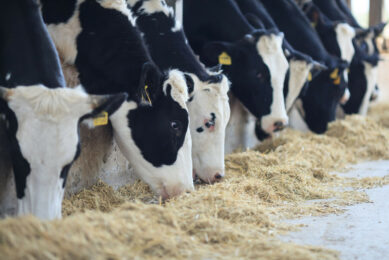Do consumers really care about antibiotic use?

Consumers have an increasingly important voice in the way their food is produced. Considering all the (mis)information available, are the meat-eating public still willing to consume products of animals treated with antibiotics? A joint Canadian/German survey aimed to find out.
The fact that reducing antibiotic use in livestock production may have negative repercussions for animal welfare is recognised by scientists, but may not be as easily understood by the public. Antibiotic use in livestock production is blamed as one of the main reasons for the increase in antibiotic resistance leading in some cases to a call for ‘antibiotic free’ livestock production. However, to deny sick animals a treatment with antibiotics if needed conflicts with animal welfare considerations. Reducing the need for antibiotic use in livestock production, without increasing the suffering of animals, requires adjustments in animal husbandry that is likely to come at a cost; a cost that will ultimately be met by the consumer and/or producer.
A joint study between the University of Alberta, Canada and University of Bonn, Germany therefore investigated the factors influencing consumers’ willingness to consume products of animals that have been treated with antibiotics, their willingness to pay for a considerable reduction in the use of antibiotics and their willingness to consider animal welfare in the context of ‘antibiotic free’ livestock production. The study, which was based on an online survey in Germany and Canada and conducted in October 2016, also explored the factors that influence consumer behaviour, including awareness of the antibiotic resistance issue, personal antibiotic experience and knowledge of antibiotic use in livestock production.
Current antibiotic legislation
The 2 countries currently have different approaches to antibiotic use in livestock and the researchers were interested to see what (if any) difference this has on consumer perception. In Canada, antibiotic use in livestock production is currently allowed for growth, prevention and treatment and there is increasing pressure for antibiotic free production. In Germany antibiotic use is more limited, given the EU-wide ban on using antibiotics for growth promotion which was implemented in 2006. Consideration of further therapeutic antibiotic restrictions are being discussed at an EU level rather than in the wider public.
To support the study, data were collected from about 500 respondents in each country. The survey contained questions on each individuals’ knowledge about attitude towards, and experience with antibiotics (and resistance) as well as meat (livestock product) eating behaviour. In summary, there are some similarities in the concerns about antibiotic resistance in Canada and Germany, but there are also considerable differences. Results reveal that 44% of the respondents in Canada and only 27% of respondents in Germany are willing to consume livestock products from animals treated with antibiotics (Figure 1). On analysis of the results, the researchers concluded that “the vast majority of people now are eating livestock products from animals given antibiotics, but they may not know this. From the answers provided it appears that the level of understanding of how antibiotics are being used isn’t particularly high. In addition, people may be suggesting (through their answers) that they ‘wish’ to not eat meat from animals given antibiotics. This is something the major restaurant chains may be picking up on through their antibiotic free moves which have been receiving a lot of press in North America recently.”
Consumers willing to pay the price
With respect to willingness to pay for animal products from animals that have been treated with 60% fewer antibiotics, Canadians are more conservative than Germans. 9% (45 respondents) of the German participants reveal no willingness to pay extra. Meanwhile this was 15% (77 participants) of the Canadians surveyed.
Overall, the results reveal a link between concerns about animal treatment and the respondents’ belief that antibiotics should not be used in livestock production, which suggests that the public is not aware of the negative repercussions a banning of antibiotics in livestock production might have on animal welfare. Therefore the study concluded that further analysis would be necessary to identify exactly what is driving concerns about how animals are currently being treated and the public’s desire for fewer antibiotics to be used in livestock production.
This article is based on the paper ‘Public acceptance of antibiotic use in livestock production in Canada and Germany’ which was written by Ellen Goddard, University of Alberta, Canada and Monika Hartmann and Jeanette Klink-Lehmann, University of Bonn, Germany. The paper was first published in ‘Proceedings in system dynamics and innovation in food networks 2017’.
References available on request











